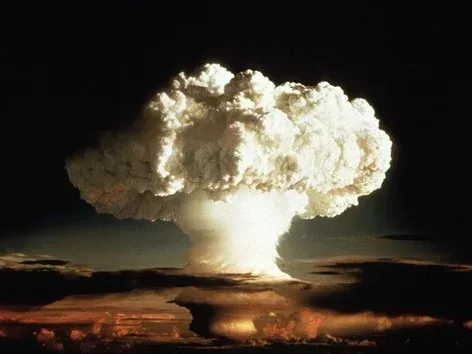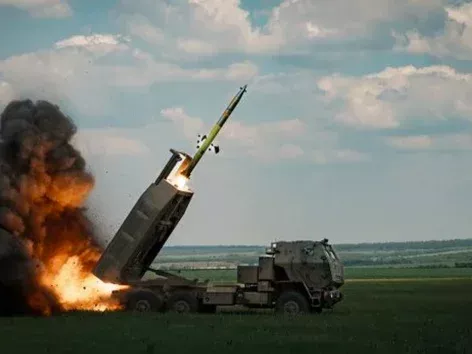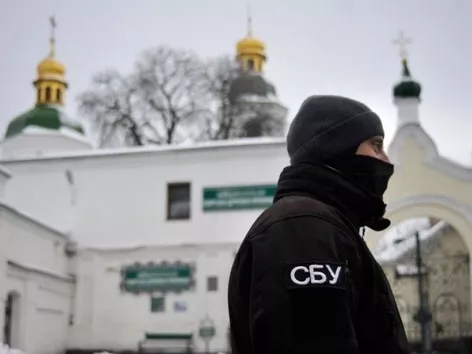Exactly 68 years ago, the Soviets tested a powerful nuclear bomb: what were the consequences and what happened to its creator?

The USSR's first two-stage thermonuclear bomb was tested on November 22, 1955. The mushroom that was formed by the explosion rose to a height of 14 kilometers. Learn more about how the Soviets conducted the test, what problems they encountered and how one of the creators of the RDS-37 bomb died
On November 22, 1955, the Soviet Union tested a powerful nuclear bomb, the RDU-37. This event left its mark on world history and raised concerns around the world. Here's how it happened and how the test affected russia's ambitions.
The RDS-37 tests took place in Semipalatinsk (now Kazakhstan) and became part of the USSR's secret nuclear program. They resulted in an explosive yield equal to millions of tons in TNT equivalent, which emphasized the enormous potential for destruction that could be faced. This moment could not go unnoticed by the international community.
Preparation for the test and the emergency situation
In a special decree, the USSR Council of Ministers chose Test Site 2 for the test. The orders of October 12 and 13, 1955, listed the main tasks related to the testing of the RDU-37 bomb
- targeted bombing of the RDS-37 bomb from an airplane;
- control of the bomb's automation on the bombing trajectory;
- protection of the fighter carrier aircraft by MiG-17 fighters;
- taking samples of explosion products on Il-28 aircraft, monitoring cloud movement;
- control of flights and equipment of command centers.
It is worth noting that the councils initially faced problems during the tests. On the day the bomb was to be dropped at the test site, the weather in the region deteriorated. The pilots of the plane reported to the ground that their sighting sensor had gone off.
In response, the USSR military leadership did not authorize the landing, as no one knew how the bomb would react when the plane landed. A few hours later, nuclear weapons developers authorized the maneuver, and the pilots were able to land at the airfield.
Testing a thermonuclear bomb
As you know, the thermonuclear bomb is named after its destructive power. With the same impressive factors as nuclear weapons, thermonuclear weapons have a much higher possible explosive power.
In November 1955, the Soviet Union conducted the first test of a two-stage thermonuclear bomb, the RDU-37. The bomb was dropped from an altitude of 12 km and a flight speed of 870 km/h. The bomb exploded at an altitude of 1550 meters. Approximately 5-7 minutes after the explosion, the height of the radioactive cloud reached 13-14 kilometers. The diameter of the cloud "mushroom" by this time was 25-30 kilometers.
Later it was found that the energy release of the explosion was 1.6 Mt, although it was originally planned that the energy release would be 3 Mt.
Visit Ukraine on social media: Telegram | YouTube | Instagram | Facebook | Twitter | TikTok
The mysterious death of the creator of the RDS-37
In the summer of 2023, one of the creators of the first Soviet two-stage thermonuclear bomb, the RDS-37, Hryhorii Klinishov, was found dead in Moscow.
At the time, the russian media wrote that the nuclear physicist's death was allegedly the result of suicide. He left a suicide note next to his body. In it, the man said goodbye to his family.
It is still unclear why the pensioner needed to take his own life. However, it is worth noting that Klinsov's "suicide" occurred during a period of strange deaths of former military and top officials in russia.
Consequences and deadly weapons in the hands of russia
The successful testing of the RDS-37 opened the door to a new era of nuclear threats and led to an arms race between the USSR and the United States. This race created enormous nuclear arsenals, and the entire world map became a political field of struggle for influence and control. The Soviet Union became a country that could threaten with nuclear weapons and used it as a means of political pressure.
Threats related to nuclear weapons continue to exist in the modern world. Russia, as the successor to the USSR, continues to use its nuclear arsenal as a tool of political manipulation and pressure on the international community. The topic of nuclear weapons has been raised by the russian leadership especially since the beginning of russia's full-scale war against Ukraine.
Dictator vadimir putin and his sycophant Dmitry Medvedev have repeatedly threatened the West with nuclear strikes.
Today, russia remains one of several countries with huge nuclear arsenals, and its nuclear capabilities cast a shadow of threat, so the need to reduce nuclear arsenals and find peaceful solutions to conflicts is becoming more and more urgent.
The day of the first test of the RDS-37 nuclear bomb in the USSR reminds us of the need for efforts to reduce nuclear threats and create a safer world. The lesson to be learned from this history is that nuclear weapons should not be used as a means of political pressure, and their role in world politics should be minimized to ensure peace and security of all mankind.
We remind you! In 1996, Ukraine was made to believe that the world was tired of the terrible world war and refused to solve problems by force of arms. But as time has shown, this is an absolute lie. Read how and why Ukraine gave up nuclear weapons here.
Want to know more? Read the latest news and useful materials about Ukraine and the world in the News section.
You may be interested in:
Visit Ukraine Donation - make a good deed and an important contribution to the Victory of Ukraine;
Visit Ukraine Legal advice - comprehensive legal support on entry to Ukraine;
Visit Ukraine Tours - the largest online database of tours to Ukraine for every taste;
Visit Ukraine Merch - choose patriotic clothing and accessories with worldwide delivery;
Visit Ukraine News - get the latest news and updates in our Telegram channel;
Cooperation - cooperation and advertising integrations with Visit Ukraine and Visit World projects.
© 2018-2023, Visit Ukraine. Use, copying or reprinting of materials on this site is permitted only with a link (hyperlink for online publications) to Visit Ukraine.
All rights reserved.
Recommended articles
2 min
War
American ATACMS missiles were finally delivered to Ukraine and were used for the first time to attack russian military facilities on october 17. Read more about how many and what modification of ATACMS the Ukrainian forces received
18 Oct. 2023
More details2 min
Way to Victory
Units of two Ukrainian marine brigades have taken over russian positions on the left bank of the Kherson region. Find out more about the successes of the AUF in southern Ukraine and whether this means a full-scale offensive on another section of the front
19 Oct. 2023
More details2 min
Popular
Banning the UOC-MP in Ukraine: the bill has been passed, what's next?
In the first reading, the Verkhovna Rada passed a bill that should begin the process of banning the moscow patriarchate in Ukraine. Find out why the parliament could not vote for the ban for more than 10 months and what will change after the adoption
21 Oct. 2023
More details3 min
War
Information was thrown into the rossmedia that citizens of Israel are migrating en masse to Ukraine after losing the war against Hamas. Find out more about what Ukrainians think about this and why this is one of the most delusional IPSOs by russia
21 Oct. 2023
More details

